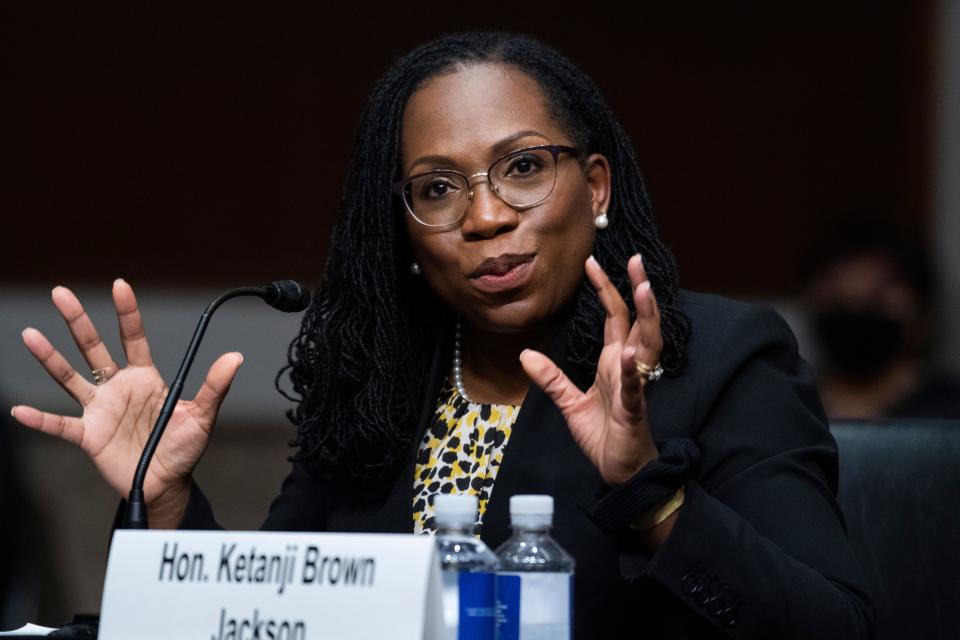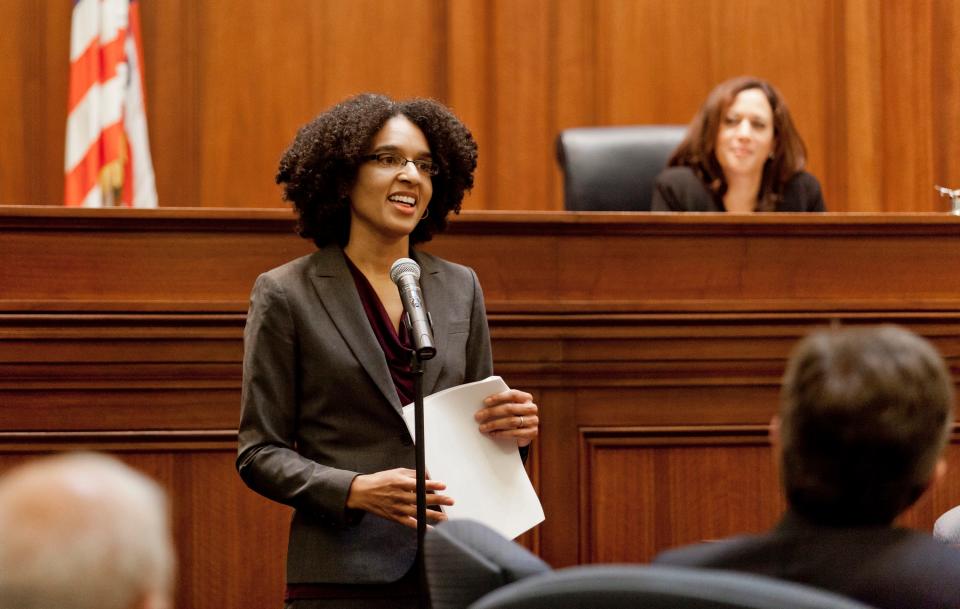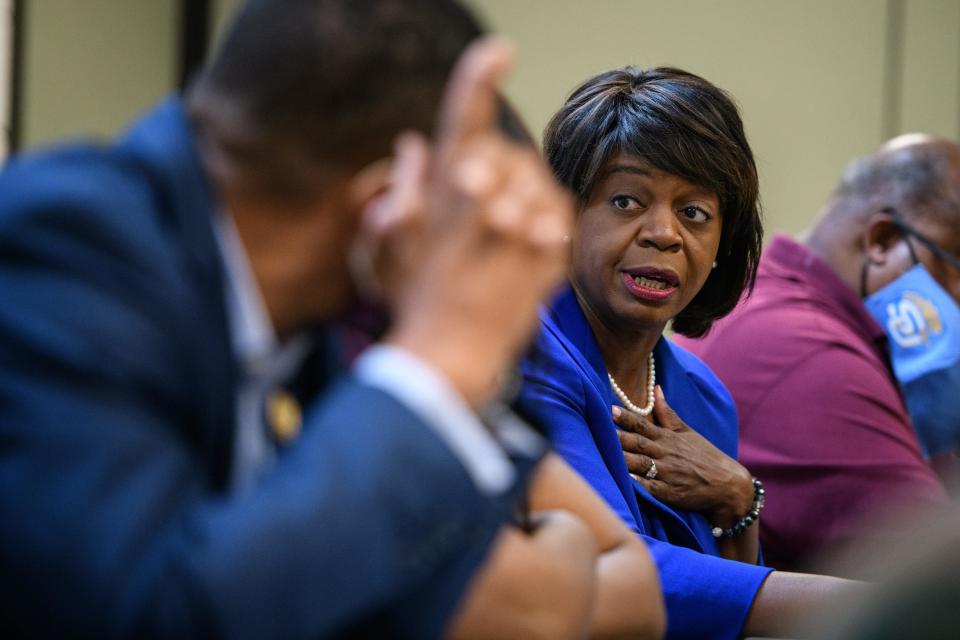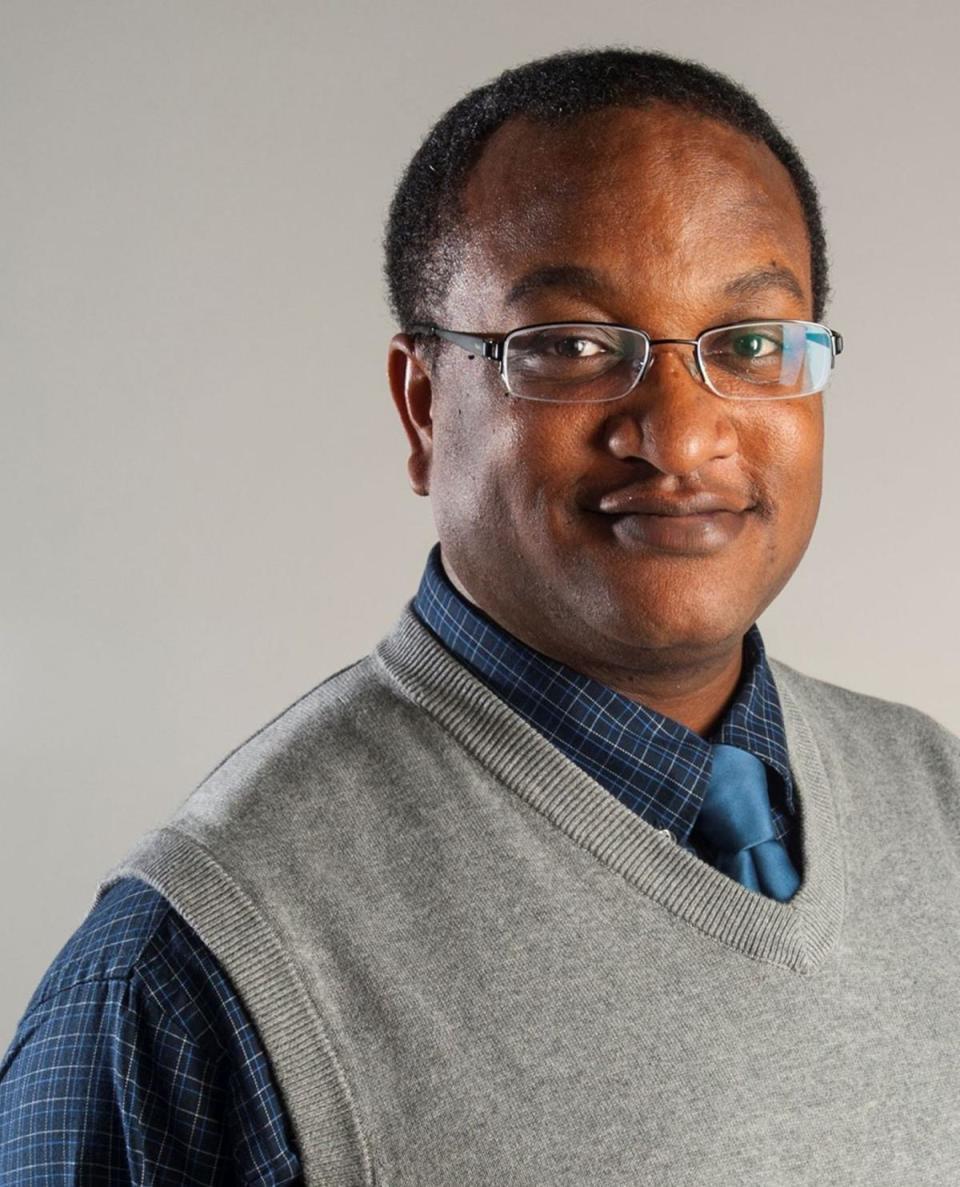Myron B. Pitts: Biden’s pick for the U.S. Supreme Court will be a Black woman —and well-qualified
- Oops!Something went wrong.Please try again later.
- Oops!Something went wrong.Please try again later.
We are on the cusp of history with President Joe Biden likely to appoint the first African-American woman to the U.S. Supreme Court.
The timing is especially symbolic, with the Martin Luther King Jr. holiday just in the rearview and Black History Month beginning in a few days. More Black history, and also American history, is soon to be made.
More: Myron B. Pitts: Children, masks and coping in the COVID-19 era
Supreme Court Justice Stephen G. Breyer is planning to retire, opening up Biden's first chance to fill a Court seat. Breyer, who is 83, is one of the three liberals on the Court and was nominated by President Bill Clinton in 1994.
Biden pledged on the campaign trail in 2020 he would nominate a Black woman. He reaffirmed that commitment Thursday.
He has made such a pledge before, and kept it. He announced after securing the Democratic Party presidential nomination in 2020 that he would pick a woman of color for his running mate; he chose Kamala Harris, now the country’s first female vice president.
More: Myron B. Pitts: Distrust fuels dueling narratives between Fayetteville law enforcement, protesters
Predictably, some people have rushed in to say Biden should pick the “most qualified” person for the Supreme Court and ignore race and gender. I think fewer people would say such things if they knew how it sounded to Black folks, women and those of us in underrepresented groups.
Let me tell you that it sounds naive at best — insensitive, racist or sexist at worst. Because it makes it sound like there are no qualified Black women to serve on the Supreme Court, and if Biden sets gender and race criteria, he is inevitably settling. It also makes it sound like the exclusively white men that served on the Court until the 1980s were qualified, but no other demographic in America was.(with the sole exception of Thurgood Marshall, nominated by President Johnson in 1967).
That is nonsense. All of it.

More: Myron B. Pitts: Cumberland health director drops the ‘E’ word. COVID-19 may be here to stay
Supreme Court nominees are generally a very talented group of individuals, but they are not superheroes or magical beings. There are hundreds and likely thousands of Americans with the legal expertise and intellect to handle the job. This includes many Black women. The idea that one person is the most qualified is completely made up. Qualified Supreme Court nominees are not organized like neat college football rankings (and even those are often disputed.)
Keep in mind some of the “well-qualified” justices of the past authored some of history’s most abominable judicial opinions — I am looking squarely at Plessy vs. Ferguson, which upheld racial segregation.
There is precedent for Biden’s move, too, which is usually the case in politics. Republican President Ronald Reagan said on the trail in 1980 that he would fill a Supreme Court vacancy with the first woman. The next year, he nominated Justice Sandra Day O’Connor, who would go on to become one of the Court’s most influential swing votes.
In 1991, the first President Bush, also Republican, decided to fill the seat of Marshall, who was Black, with Clarence Thomas, who is also Black.

We need to be honest: Any president, Democratic or Republican, already has conditions set for any nominee from the word go. What I mean is they will pick someone whose judicial records and opinions align with their own political values. If the mythical “most qualified” jurist at the moment is a conservative, Biden is not picking her or him no matter what. It was the same deal with his predecessor, Trump, who would never have picked a liberal or progressive judge, no matter their resume.
In short there is nothing wrong with a president trying to make these nine seats resemble more of America. I applaud Biden for his stance.
He has a strong roster of African-American, female jurists to choose from. Two names repeatedly mentioned on the short list are Ketanji Brown Jackson, who was confirmed by the U.S. Senate last June to serve on the D.C. Court of Appeals — often considered a stepping stone to the High Court; and Justice Leondra Kruger of the California Supreme Court. Kruger served as the acting Principal Deputy Solicitor General, the office that argues the government’s side in Supreme Court cases, and as a lawyer in the U.S. Justice Department’s Office of Legal Counsel.
Support local journalism with a subscription to The Fayetteville Observer. Click the “subscribe” link at the top of this article.
A favorite pick of Democratic activists (and social media) is law professor Sherilyn Ifill, a well-known civil rights advocate who is president and director-counsel of the NAACP Legal Defense Fund.
Two long-shot names from North Carolina are Cheri Beasley, former chief justice of the N.C. Supreme Court and candidate for U.S. Senate; and Anita Earls, who is currently serving on the N.C. Supreme Court.
Of the two, Beasley, of Fayetteville, seems a highly unlikely choice for Biden. She is presently the Democratic front-runner in a critical Senate race that could help determine the course of that chamber, currently split between 50 Democrats and 50 Republicans, with Harris as the deciding vote.

That slimmest of majorities could make things difficult for Biden during the confirmation process. Chuck Schumer, Senate majority leader, has indicated he wants a quick timetable to confirm the nominee, but that may not be possible.
That's fine. Whether confirmation goes quickly or slowly, this history-making Supreme Court appointment will stand forever in the history books.

Opinion Editor Myron B. Pitts can be reached at mpitts@fayobserver.com or 910-486-3559.
This article originally appeared on The Fayetteville Observer: Myron B Pitts: Biden's pick for US Supreme Court will be a Black woman

